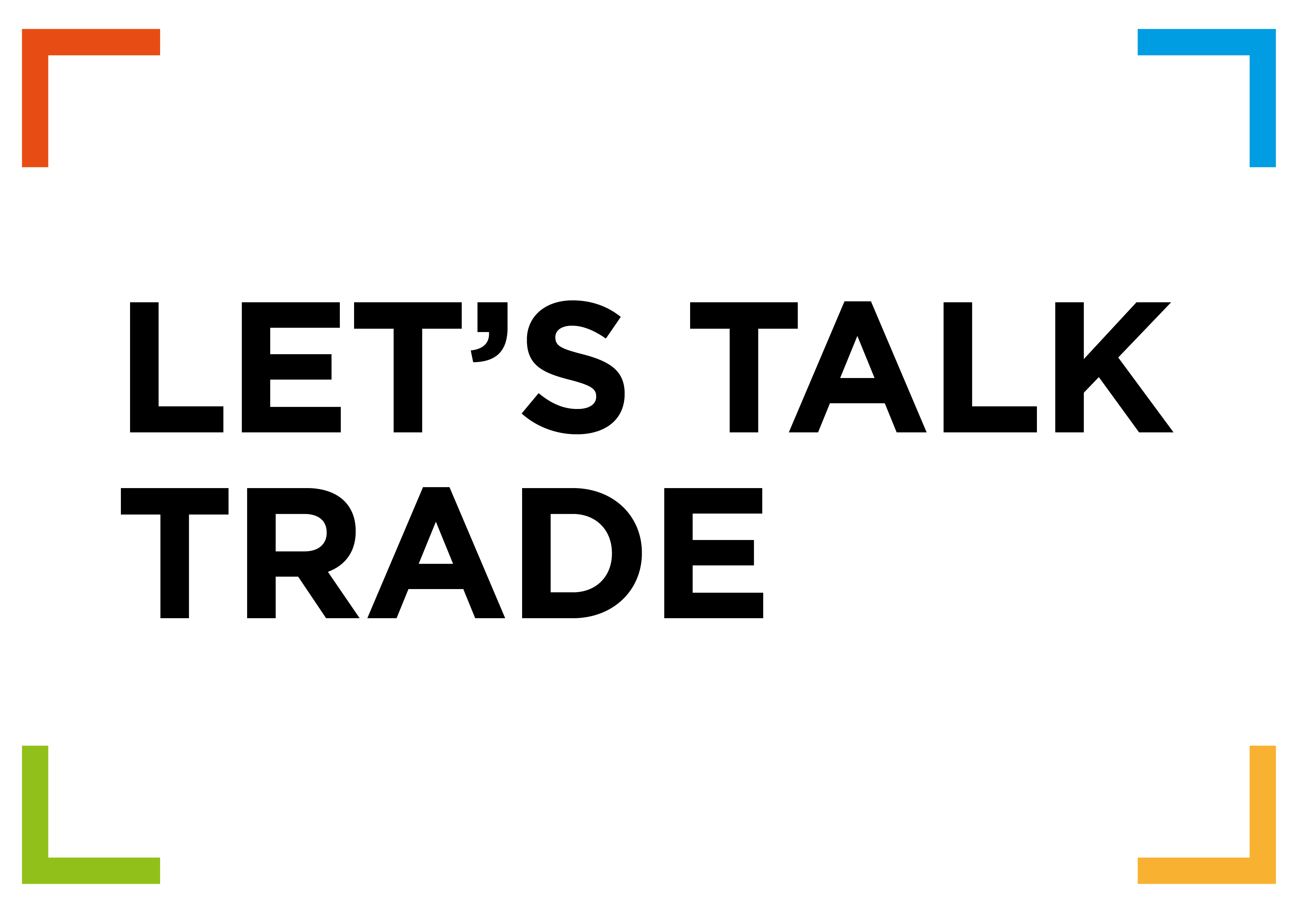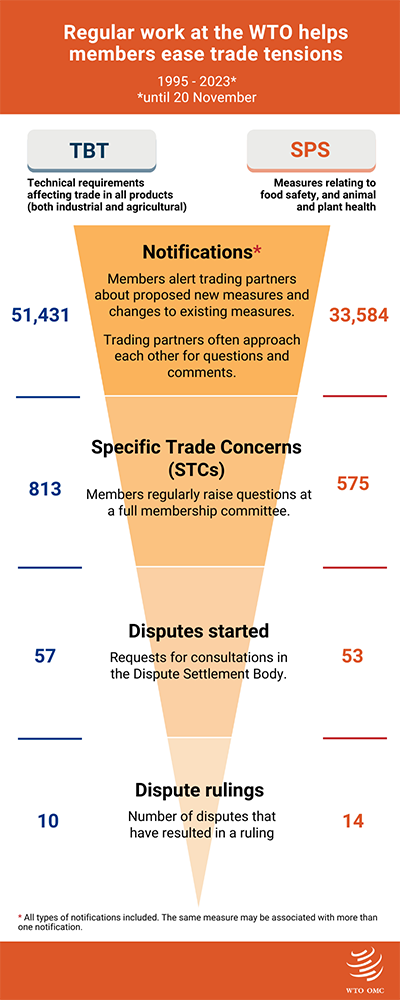LET’S TALK TRADE
Video
> Download (right-click and select “Save as” to download and view offline) Quality: > help
If you want to go deeper on this topic, here are a few additional explanations and reading suggestions.
A little jargon busting first: SPS is short for “sanitary and phytosanitary” which is one way of designating everything that is related to food safety and animal and plant health.
Why does international trade need an SPS Agreement?
Sanitary and phytosanitary measures are necessary to ensure health protection, but they can also be a powerful tool to restrict trade. That’s why WTO member governments developed rules on how these measures can be used. The Agreement on the Application of Sanitary and Phytosanitary Measures (the “SPS Agreement”) tries to sort out requirements that are driven by genuine health concerns from those that are potentially excuses for protectionism, or applied in a way that restricts trade more than necessary.
Countries have to make sure that their SPS measures are based on scientific evidence of risk or follow internationally recognized standards developed by these international organizations:
- the joint FAO/WHO Codex Alimentarius Commission (Codex) for food safety
- the World Organization for Animal Health, formerly known as the Office International des Epizooties (OIE)
- the International Plant Protection Convention (IPPC) which is based in FAO, for plant health.
Whenever a government is proposing a new regulation or modifying an existing one that may affect international trade, it must notify the WTO Secretariat, which then circulates the notification to other WTO member governments. Normally, changes have to be announced in advance so that other countries have a chance to comment, and so exporters can adapt to the new requirements.
What kind of issues do SPS measures typically deal with?
- additives in food or drink
- contaminants in food or drink
- poisonous substances in food or drink
- residues of veterinary drugs or pesticides in food or drink
- certification: food safety, animal or plant health
- processing methods with implications for food safety
- labelling requirements directly related to food safety
- plant/animal quarantine
- declaring areas free from pests or disease
- preventing disease or pests spreading to a country
Who benefits from the SPS Agreement?
- Consumers in all countries benefit. The SPS Agreement helps ensure the safety of their food, and the availability of a wide range of choices.
- Developing countries benefit because the rules apply irrespective of their political and economic strength or technological capacity, and they can use the SPS Agreement as a tool to gain market access for their exports.
- Exporters of agricultural products in all countries benefit from the elimination of unjustified barriers to their products.
- Importers of food and other agricultural products also benefit from the greater certainty of border measures.
What does the SPS Committee do?
The Committee on Sanitary and Phytosanitary Measures (the “SPS Committee”) provides a forum for governments to discuss food safety and animal and plant health measures which affect trade. The SPS Committee, like other WTO committees, is open to all WTO member countries. Governments may send whichever delegates they believe appropriate to participate in the meetings of the SPS Committee, and many send their food safety authorities or veterinary or plant health officials. The SPS Committee usually holds three regular meetings each year.
Only a fraction of all notified food safety, plant and animal health measures have so far led to a queries or opposition by WTO member governments. These measures are treated as “Specific Trade Concerns” (STCs) in the SPS Committee. The involved parties are encouraged to engage in consultations and privilege a cooperative and science-based approach to settle their concerns.
The SPS success story in a chart
The high level of engagement by the WTO members and the small number of genuine SPS-related trade disputes make the implementation of the SPS Agreement a success story.
The right half of this chart shows the achievements of the SPS committee’s work in preventing and resolving trade friction (the left half shows the achievements of the TBT Committee that deals with quality and safety standards, and also works with notifications).
Links:
The WTO gateway page to all things SPS
https://www.wto.org/english/tratop_e/sps_e/sps_e.htm
Explanatory booklet about the SPS Agreement
https://www.wto.org/english/res_e/booksp_e/agrmntseries4_sps_e.pdf
SPS@25: Commemorating 25 years of the SPS Agreement
https://www.wto.org/english/tratop_e/sps_e/sps_at25_e.htm
The Standards and Trade Development Facility, STDF, is a joint initiative of the World Trade Organization, World Health Organization, World Bank, World Organization for Animal Health and Food and Agriculture Organization for enhancing developing countries’ capacity to meet SPS standards.
https://www.standardsfacility.org/
SPS Information Management System, a database of WTO information on Notifications, concerns raised, and other documents
http://spsims.wto.org
By registering on ePing, users can receive daily or weekly email alerts containing SPS/TBT notifications covering products/markets of interest to them.
https://www.epingalert.org/en
Special thanks to:
- Christiane Wolff, Counsellor, Agriculture and Commodities Division, WTO
- Arti Gobind Daswani, Economic Affairs Officer, Agriculture and Commodities Division, WTO
- Antonio Pais, Master Chef at the WTO cafeteria, for demonstrating how to prepare a delicious Pad Thai
- You, for sharing
Share

Problems viewing this page? If so, please contact [email protected] giving details of the operating system and web browser you are using.

